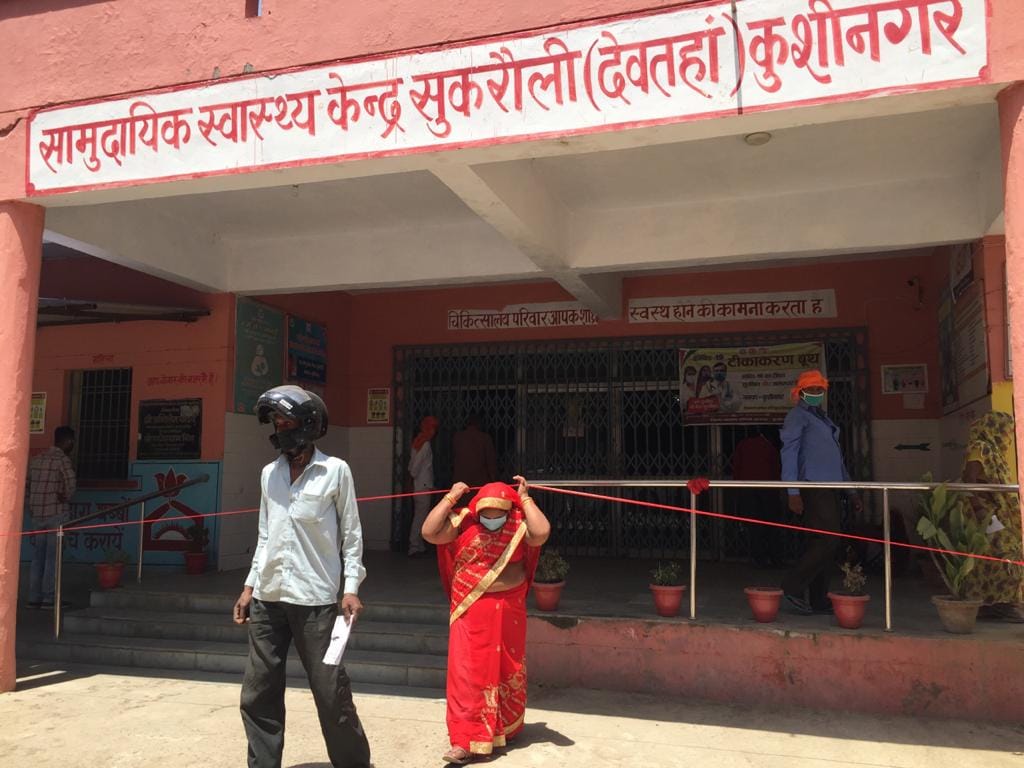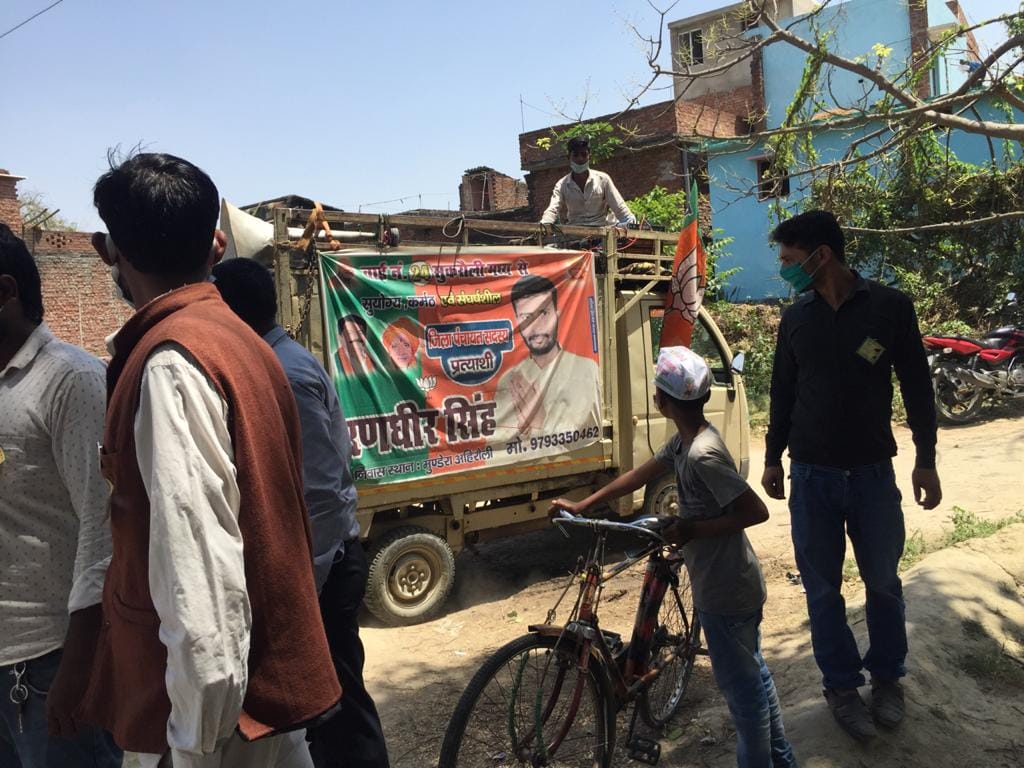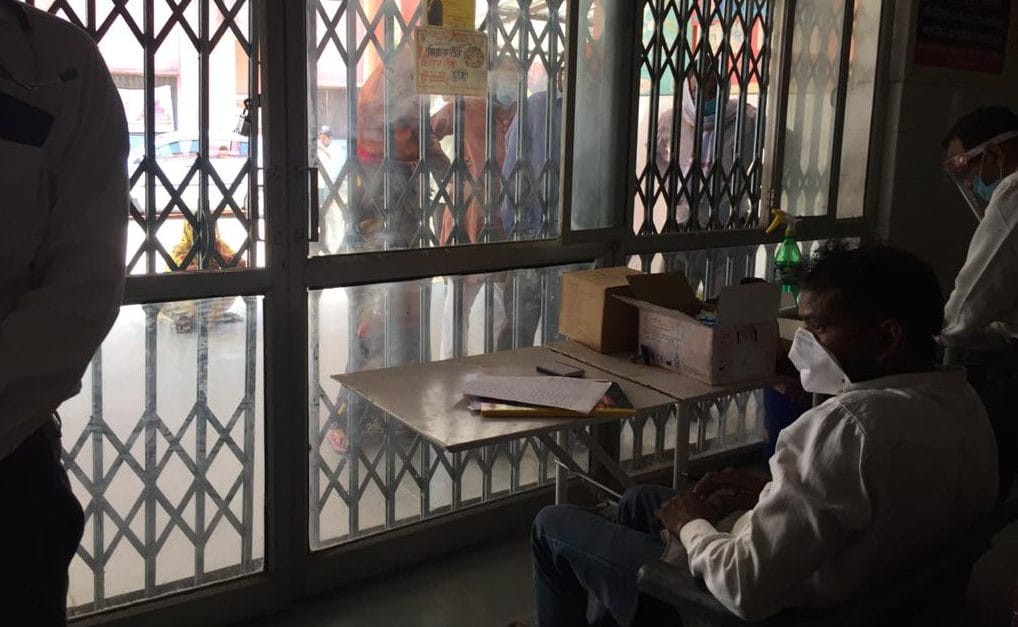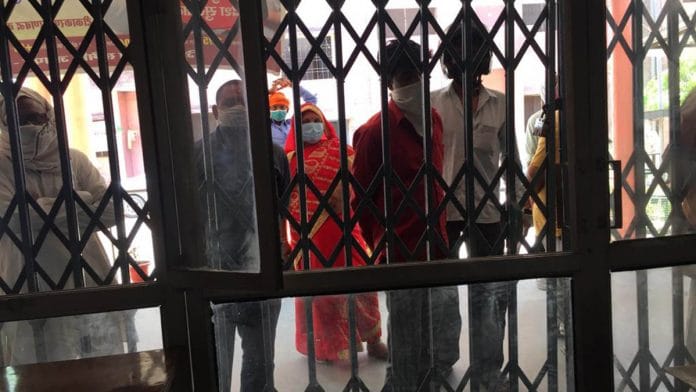Kushinagar: On Friday afternoon, a small group of villagers were waiting outside a shuttered room at a community health centre in Sukrauli block in Kushinagar, which is about 45 minutes away from the Gorakhpur district headquarter town in Uttar Pradesh.
When asked about the purpose of their visit to the centre, one of them hesitantly responded: “Corona bukhaar ke liye (to test for coronavirus fever).”
In Sukrauli block, only a handful of villagers have got themselves tested for Covid, but, according to Dr Heman Verma, in-charge of the block’s community health centre (CHC), this was a marked departure from last year.
Dr Verma said villagers are generally reluctant to seek medical aid for fever or cold, which are also symptoms of Covid-19. “But the severity of Covid-19 this time, with many villagers getting seriously ill in a short time, has created fear. Though a fraction of the total population, villagers are coming on their own to get themselves tested,” he said.
And their fear is not unfounded. The aggressive second wave of the pandemic has led to a massive surge of cases in the rural belts of eastern Uttar Pradesh.
A perusal of official data from the rural areas in the Gorakhpur division — comprising the districts of Gorakhpur, Deoria, Kushinagar and Maharajganj — revealed that in the past 10 days, daily cases in these areas outnumbered those from urban areas on four days.
According to data released by the Gorakhpur administration, on 24 April, a total of 1,256 cases were registered in the division and 601 of them were recorded in rural areas while 589 were from urban centres.
A similar trend was seen on 22 April. Of the 1,092 total positives, 543 were from rural areas and 511 belong to urban areas.
On 21 April, rural areas reported 484 cases against 445 in urban areas and on 18 April, of the 817 positive cases, 494 were reported in rural areas and 284 in urban centres.
According to a doctor at Sukrauli block’s CHC, the upswing in cases can be attributed to the ongoing panchayat elections.
“There is no denying this,” said the doctor, who wished to remain unnamed, adding that the numbers reported were also just the tip of the iceberg.
“The actual numbers will be much more. Many villagers do not come to CHC and prefer local remedies or consulting the village doctor (quack),” he told ThePrint.
As of Friday, official figures put the total number of Covid cases in Sukrauli block at 135, which is just a fraction of the total population that stands at 1,89,203.
“Ït is criminal that despite Covid cases showing a spurt in rural areas, the election process is still on,” another doctor, at a district hospital in Deoria, said.
Meanwhile, Jayant Narlikar, Gorakhpur’s divisional commissioner, told ThePrint: ”Unlike last time, the numbers are on the increase in rural areas. The reason could be many. Many from the villages, who were working in cities have returned to their villages after lockdowns were announced in Delhi and Maharashtra, bringing back the infection.”

Also read: ‘No mother should see such day’: Stories of despair in CM Yogi’s Gorakhpur as UP fights Covid
Campaigning for panchayat polls in full swing despite Covid
The surge in Covid cases, however, has not dampened the preparations and campaigning for the panchayat elections.
Canvassing is on in full swing in Kushinagar’s villages, with candidates or their family members carrying out door-to-door campaigning.
Tempo trucks with posters of candidates, loud music and requests to support the pradhan (village head) candidate are also a common sight.
Rakesh Singh of Bishunpur Kaithwaliya village is undertaking a door-to-door campaign for his mother Aarti Devi, who is contesting for the pradhan post in Sirsiya’s gram sabha. The election in the gram sabha is scheduled for 29 April.
“I campaign for my mother in the early morning and evening,” said Singh, one of the few who wore a mask at all times in the villages.

Most of the villagers did not wear masks or adhere to social distancing protocols and went about their work as usual.
“I don’t know about other villages. But in our village there are no corona cases,” Durbal Yadav, an auto driver, said.
Yadav was driving three elderly women back from a vaccination centre and none of them wore masks.
The four-phase elections that started on 15 April will conclude on 29 April, and results will be declared on 2 May.
Also read: People forgot about Covid as cases dipped, we were not prepared when it returned: UP minister
Decrepit health infra, Covid reports come after 72 hrs
According to government officials as well, the actual Covid numbers in Kushinagar are likely to be much higher than the official figure.
The foremost reason for this, they said, was that testing was not being carried out adequately.
In rural areas, Covid tests are being conducted only at CHCs in the block level.
“Daily, we are testing about 50-70 people. Some days the numbers are lower. Our target is to test 100 people every day,” said a lab technician at the CHC in Sukrauli block.
The CHCs are mostly carrying out rapid antigen tests. An RT-PCR test is conducted only when a person shows clear Covid symptoms and is really unwell, the technician added.
The reason for this is because there is no facility in the CHC to analyse the RT-PCR samples and they are sent to a hospital in Gorakhpur.
“We have no choice but to send the samples to BRD hospital in Gorakhpur. The reports come in only after 72 hours,” said Dr Verma.
In the meantime, if a patient’s health deteriorates, they are sent to the government health facility at Padrauna, which is about 45 km away from the block.
“Patients with mild symptoms are asked to isolate at home,” he said.

Another reason for the surge in cases is that many villagers do not get tested after developing symptoms, preferring to consult village quacks for medicines.
Pharmacy shops in the villages have also seen an increase in the sales of medicines for fever, cold and cough.
Sanjay Mishra, who runs a pharmacy near the Sukrauli block office, said the number of villagers directly approaching his shop for fever medicines had increased in the last fortnight.
“I am getting 20-25 villagers every day who come and say they have breathing difficulty, fever and cough and want medicines. They have not been referred by any doctor. I give them basic fever medicine like paracetamol and cough syrup,” Mishra said.
(Edited by Rachel John)
Also read: Over 1,900 UP cops test Covid positive in last 2 weeks, officials blame panchayat polls






